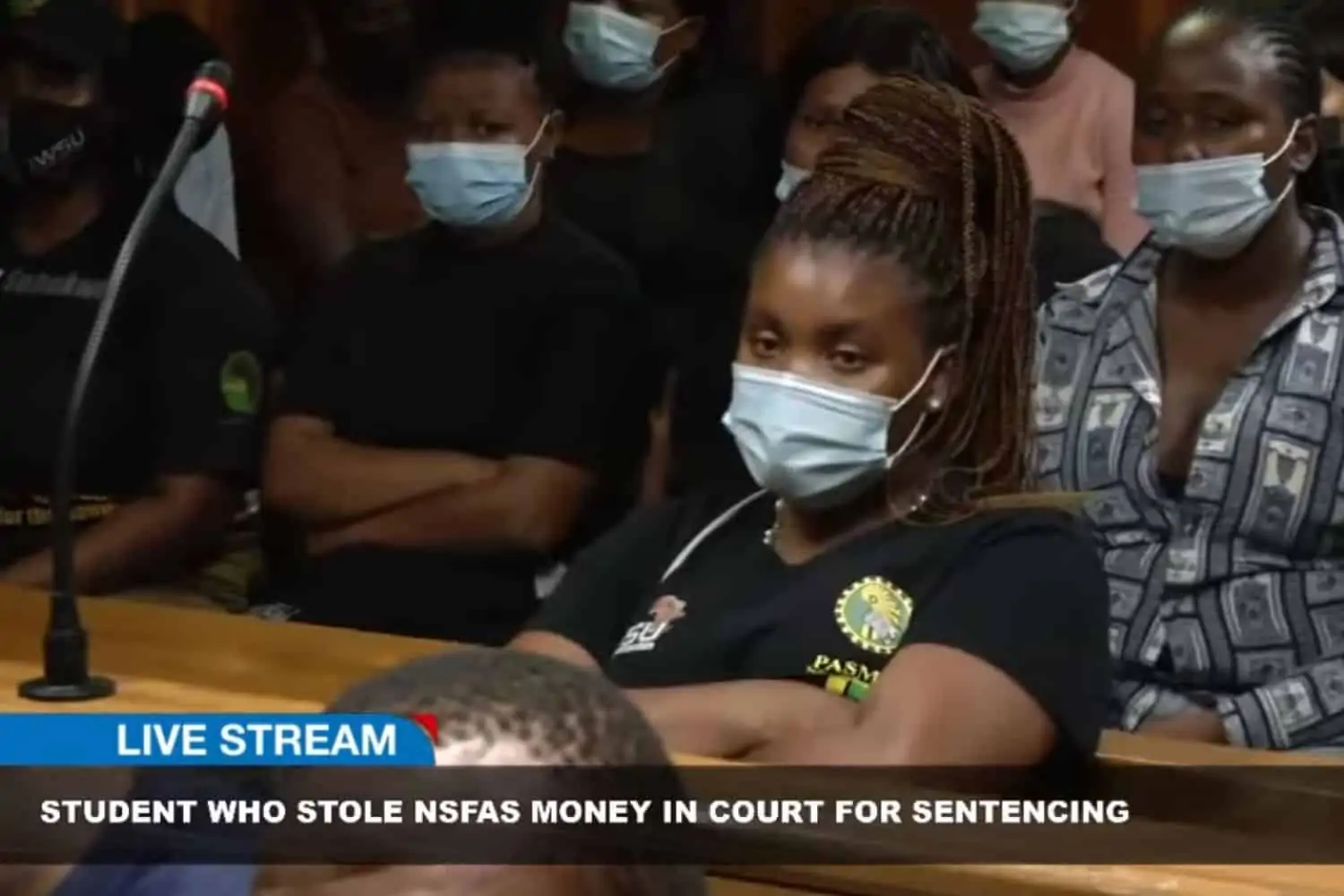Sibongile Mani, a student of Walter Sisulu University (WSU), has been sentenced to five years imprisonment after spending R800 000 of the R14 million that was accidentally credited to her account by the National Student Financial Aid Scheme (NSFAS) in 2017.
An expensive mistake
Mani was meant to receive an R1 400 food allowance when instead she was credited with R14 million. She was accused of failing to report the clear accident and instead used R818 000 of the money.
And so, on Wednesday the East London Regional Court Magistrate, Twanette Olivier, found Mani guilty of stealing those funds.
“The only sentence that is appropriate is direct imprisonment, and you are therefore sentenced to a term of five years’ imprisonment.”
Mani will be eligible for parole after serving one-third of the five-year sentence. And if parole is granted, she will be able to finish her sentence under correctional supervision.
Sibongile Mani showed “greed not need”
Mani spent more than R800 000 in 73 days. And Magistrate Olivier accused her “shopping spree” of coming from a place of “greed not need” as she didn’t spend the money on essentials items.
“You, and only yourself, made that decision on 1 June 2017, you did so repeatedly, for 73 consecutive days, numerous times per day.”
“You were rushing against time to spend the maximum amount before it’s spoilt or brought to [an end]. Those were conscious decisions you took every day, not the court,” said Olivier.
In court, it was revealed that Mani spent money at 48 different stores in three provinces – the Eastern Cape, Gauteng, and the Western Cape.
“[Y]ou had definitely planned per day as to how much you can spend per day in as many places as possible on any given date”.
A quick look at Mani’s expenditure records shows us that she spent:
- R178 923 at Discount Supermarket in Fleet Street, East London;
- R174 631 at Checkers Hyper supermarket in Centurion;
- R107 255 at Checkers Nonesi Mall in Komani;
- R68 116 at Shoprite on Caxton Street in East London;
- R17 006 at Shoprite in George.
Olivier even commented on how “remarkable” it was that Mani managed to spend so much money per day in different places in the country.
A symbol of unequal treatment
Since Mani’s case received more media coverage she has become a sort of symbol of unequal treatment before the law. And many student organisations and social movements have been standing up for her and defending what she did.
According to these organisations, the court failed to mention that Mani did actually buy products that could be seen as essential (cellphone airtime, blankets, cookware, cutlery, extension cords, clothing, kettles, underwear and microwaves). But instead, the court focused on cigarette and alcohol purchases.
“It was not mentioned that she also bought basic needs. She was sentenced for the incompetency of the government. This is the story of the poor Black student in our country,” said Abahlali baseMjondolo general secretary Thapelo Mohapi.
Furthermore, this movement has highlighted the huge difference between Mani’s conviction and the politicians and government officials. Many who have not yet been charged or tried over fraud and corruption scandals.
Watch Sibongile Mani’s trial below:
